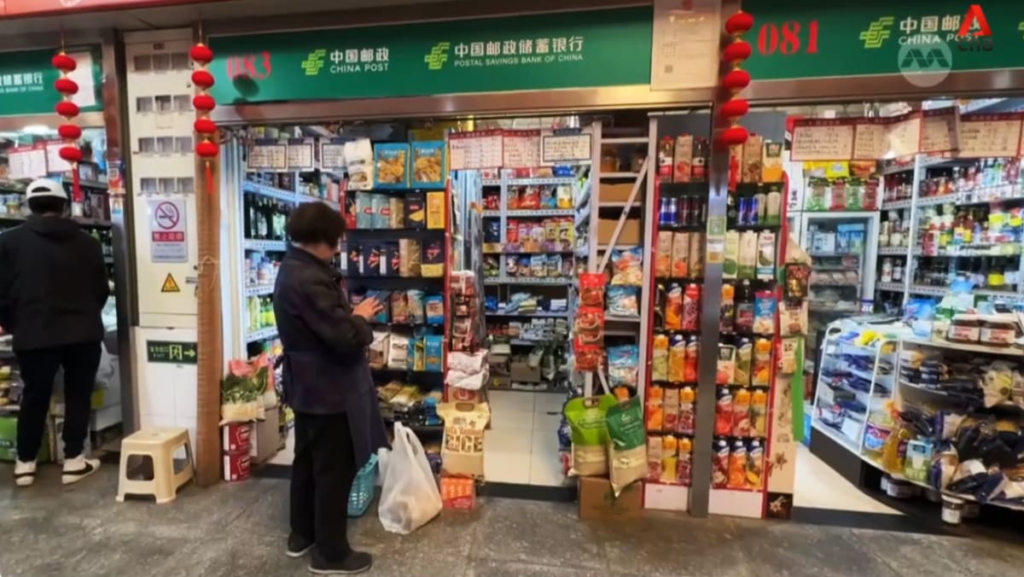The impact of the tariff war is also keenly felt at the Sanyuanli market in Beijing, which sells imported goods and caters to expatriates.
Store owner Peng Binglan said she will be forced to stop selling imported US flour in her shop, as her supplier is not replenishing the stock.
“If things keep going like this, a lot of people, including us, will not be able to stay. We just will not be able to keep working,” said Peng, who has been peddling her wares at the market for 18 years.
DIVERSIFYING TO OTHER MARKETS
China’s economy was already grappling with a host of structural challenges before the tariff shock.
While the country achieved its 2024 growth target, with the economy expanding by 5 per cent, consumers have been reluctant to spend amid a prolonged housing crisis and rising unemployment.
The steepened US tariffs will also hit Chinese exporters hard, forcing them to diversify to other markets to mitigate the impact.
“Europe and Japan are the economies that are meaningful – big enough, sizable enough to absorb China’s excessive consumer goods exports,” said Yue Su, principal economist for China at the Economist Intelligence Unit.
Yue said that China needs to consider enhancing ties with those two economies to increase their imports of Chinese products.
Chinese President Xi Jinping appeared to extend an olive branch to Europe when he hosted Spanish Prime Minister Pedro Sanchez in Beijing on Apr 11.
Xi emphasised that China and the European Union must stand against “tariff bullying”, while calling on the West to support multilateralism and open cooperation.
China is also eager to strengthen economic relationships with South Korea and Japan, with state media talking up trilateral trade ties after a high-level meeting in Seoul in March.
Read the full article here

